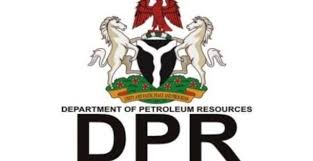It’s Very Difficult To Steal Crude Oil Offshore – DPR
The Department of Petroleum Resources (DPR), has disclosed that the majority of the crude oil theft recorded in the country’s petroleum industry took place in the inland terminals, noting that it is practically impossible to steal crude oil from the offshore terminals.
In a statement issued by its Head, Public Affairs, Mr. Paul Osu, in Abuja, Director of the DPR, Engr. Sarki Auwalu, explained, however, that Nigeria has over 30 terminals with only five of them being land terminals.
Auwalu, who was making a presentation before the House of Representatives Ad-hoc Committee on Oil Theft in Abuja, also stated that Nigeria’s crude oil production and lifting were properly accounted for, while he provided clarifications on the process it uses for accounting for crude oil production in the country.
He said: “Most of the thefts, they are coming from land terminals because the land producers have to use pipelines to transport the crude into the terminals for export.
‘In the process, you have a lot of third party interference which results in volumes that are being taken and are stolen.
“So, most of the discrepancies in production and export, you can easily calculate the theft volume.
“And the theft volume, if not all, come from the land terminals. But the offshore terminals, it is actually practically impossible to steal crude from offshore terminals, since it is from the bottom of the sea.”
Auwalu explained to the committee chaired by Honourable Peter Akpatason, that the DPR was the agency of government saddled with the responsibility of monitoring crude oil production and lifting. According to him, the methodology used in hydrocarbon accounting are static measurement and dynamic measurement.
He explained that the static was the volume that went into tank that one can dip and know the volume while the dynamic was the volume that goes across the meter.
He said: “I will like to use this opportunity to give a brief on how we account for hydrocarbon in this nation. ”I think that will provide a better view for this committee as well as Nigerians. The process starts from the well because every crude oil comes from well, and you cannot drill a well without knowing the capacity of that well to produce.
“So, the hydrocarbon accounting in DPR starts from well. Once you drill a well, you will need to have what we call a maximum efficiency rate (MER) to know the capacity that well will produce. The volume accounting starts from that point.
“We have two kinds of meters: we have production meter that you measure the volume of oil produced and we have custody transfer meter where you measure the volume of oil that exchanged hands.
“What we do is to take inventory of all wells producing in every field based on the volume we give, within which that well cannot produce more than that.
“If you under produce, you can kill the reservoir. If you over produce, you can kill the reservoir. All these volume measurements, whether static or dynamic, we take record of them.”
In his remarks, Akpatason stated that the effects of crude oil theft could not be over-emphasised, adding that it was the responsibility of all patriotic Nigerians to put an end to the menace.
He said the DPR was identified as the agency playing a key role in the monitoring of crude oil production and lifting in the country hence its invitation to the agency.




